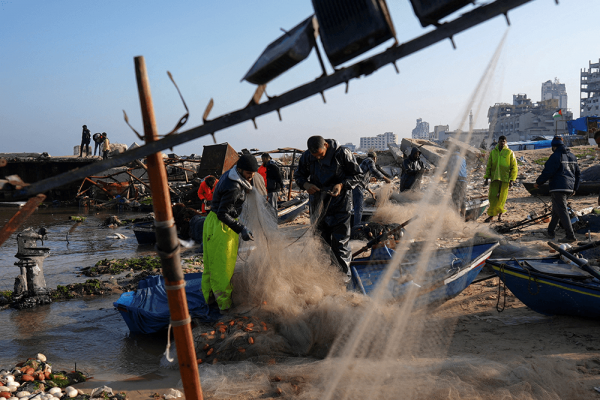Amid the fragile ceasefire, the exchange of hostages, and the temporary pause in Israel’s genocidal onslaught against Gazans, nearly six hundred Christians huddle together in one of Gaza’s battered churches, their prayers rising above the rubble as a defiant testament to their faith and resilience. Among them, Gazan Christian George Antone boldly declares, “For us, as Christians, we are not leaving Gaza. We will remain in Gaza and help people in Gaza reconstruct their houses, rebuild the streets. Yes, we will stay in Gaza. We are not leaving.”
Antone’s words stand in stark contrast to the explosive press conference at the White House on Feb. 4, when President Donald Trump brazenly suggested that the United States should “effectively own” Gaza, proposing to turn it into a real estate venture while displacing Palestinians from their homeland and relocating them to neighboring countries.
Read the Full Article

